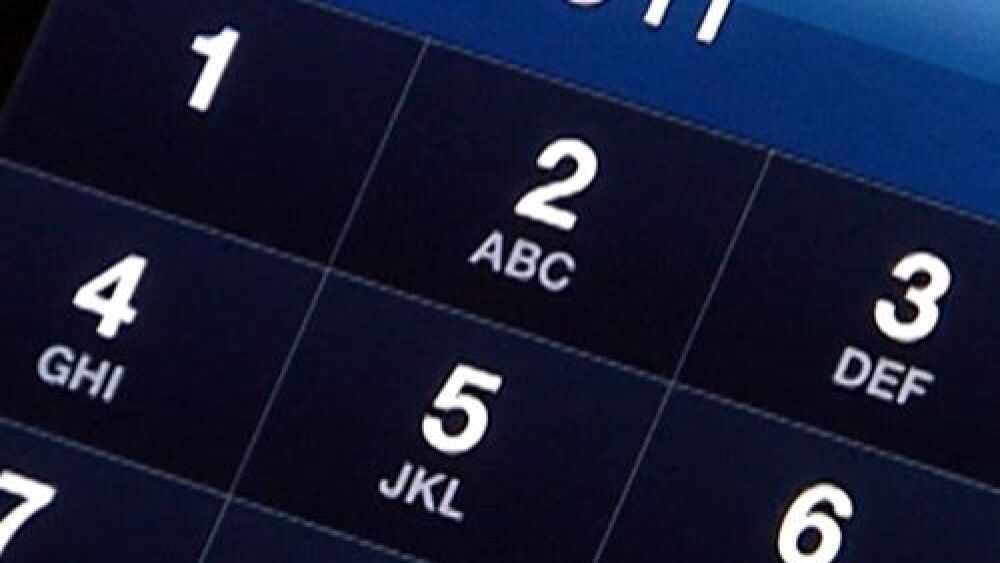Andy Mannix and Libor Jany
Star Tribune (Minneapolis)
Anticipating a spike in call volumes, emergency medical workers in the Twin Cities are advising residents they don’t need to contact 911 if they are experiencing flu symptoms.
“The goal is to reserve 911 for true emergencies,” said Hennepin Healthcare EMS Chief Marty Scheerer at a news conference on Tuesday. “We will conserve valuable 911 resources for you in the community as they are truly needed.”
Scheerer said “many, if not most of us, will contract the virus,” and in most cases paramedics would only be able to advise people to stay home. He said social distancing, hand-washing and wearing masks are effective ways to prevent the spread of the virus.
From screening 911 calls to issuing surgical masks and antiseptic wipes to all police officers, Twin Cities-area police, paramedics and firefighters are recalibrating their response to the spread of the new coronavirus. They say the goal for now is to “spread out the exposure timeline,” so the community doesn’t become exposed all at once.
Among the biggest concerns for police are what to do if an officer or a group of officers from a particular shift get sick, potentially reducing the number of personnel available to respond to 911 emergency calls.
Last week, Minneapolis police sent out a departmentwide directive outlining a series of guidelines and procedures aimed at limiting officers’ exposure to people who are sick, officials say. Any officer who is likely to come into contact with a coronavirus case was issued gloves and reusable masks, which they must carry with them while responding to calls. Dispatchers are being trained to screen people who call 911, asking them whether anyone at the location has shown symptoms of the virus.
If officers from a particular shift go home sick, the department will backfill their positions with detectives and members of specialized units like the Community Engagement Team. A police spokesman said that the department also has mutual aid agreements with other local law enforcement agencies to help them fill service gaps.
“There will be some changes in our delivery mode,” said the spokesman, John Elder, adding that certain less serious calls may be handled by phone for the time being. “Whereas law enforcement, at times, does not allow for social distancing, we will utilize that model as much as possible to limit exposure to our staff as well as persons officers come in contact with.”
Furthermore, detectives are being urged to not bring suspects and witnesses to police headquarters downtown for questioning, and instead conduct those interviews in the field. And some supervisors with small children are being allowed to work from home, on a case-by-case basis.
In St. Paul, Chief Todd Axtell temporarily rescinded the new no-beard policy for officers while they are fitted for N95 masks. Patrol officers are being equipped with gloves and hand sanitizer, while detectives have also been told to keep an extra uniform in their office, should they be needed to replace 911 responders who fall sick.
Dan Schoen, a former state senator who works as a police officer in Cottage Grove, said that the constant threat of exposure has forced local agencies to rethink their tactics.
He said that people should expect longer response times for lower-priority emergencies, while adding that concerns about not trying to squeeze more people into already overcrowded jails may also affect how certain calls are handled.
“We may deal with somebody and ask the jail, ‘Is this somebody we should be bringing in right now?’ and they may say, ‘No,’” he said, while adding that it doesn’t mean that police will stop making arrests, particularly for serious crimes and felonies. “There are situations where maybe we would have taken somebody to jail last week, but we’re not this week.”
The considerations come as officials here, as elsewhere, move to slow the spread of the coronavirus that has now been confirmed in 54 state residents. as of Monday
Minneapolis Mayor Jacob Frey on Monday declared a local state of emergency, ordering all restaurants and bars to cease their dine-in service, signaling a dramatic change of daily life in the state’s largest city.
Frey also sent a letter to the Hennepin County Sheriff Dave Hutchinson urging him to temporarily halt evictions until the crisis passes. Last week, the city announced that it would temporarily stop turning off people’s water for lack of payment, as part of an effort to encourage people to wash their hands and limit the virus’ spread.
Frey’s announcement was followed by one from Gov. Tim Walz, who went a step further, ordering all bars and restaurants across the state to close temporarily, a ban that also extended to all health clubs, theaters, museums, food courts, coffeehouses and other places of “public accommodation and amusement.”
Others places have announced similarly stringent measures. Bay Area officials on Monday issued a sweeping mandate requiring residents of seven northern California counties to stay at home and only go outside for food, medicine and outings that are absolutely essential.












